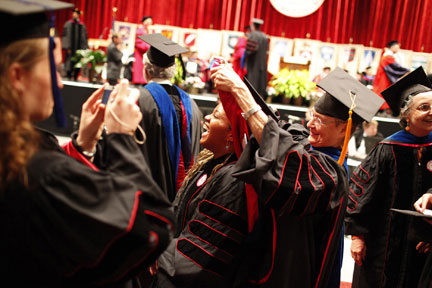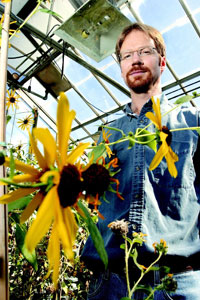Loren Rieseberg, distinguished professor of biology, has been elected a Fellow of the Royal Society, the United Kingdom’s National Academy of Science. Election to the Royal Society is one of the most prestigious honors in the natural sciences and marks the latest of many accolades Rieseberg has received during his illustrious career.
Rieseberg studies speciation, an evolutionary process by which new plant species arise. His lab integrates high-throughput genomic methods, bioinformatics, ecological experiments, and evolutionary theory to study the origin and evolution of species, plants, and weeds. He has largely focused his work on wild and domesticated sunflowers and other species in the genus Helianthus.
According to the Royal Society, Rieseberg “has made fundamental contributions to our understanding of speciation mechanisms and the evolution of local adaptation. He has pioneered the application of experimental genomic approaches to studies of microevolutionary processes. He demonstrated that new diploid plant species arise through hybridization, that this mode of speciation results from significant ecological and karyotypic divergence, and that the process occurs with remarkable speed. Rieseberg has also shown that new hybrid gene combinations facilitate the colonization of extreme environments indicating that hybridization provides a mechanism for major ecological and evolutionary transitions requiring simultaneous changes at multiple traits and genes.”
Other notable honors that Rieseberg has received include his election as a fellow to the American Academy of Arts and Sciences, the American Association for the Advancement of Science and the Guggenheim Foundation. In 2003, he was awarded a MacArthur Fellowship (also referred to as the “Genius Award”), which honors U.S. citizens that “show exceptional merit and promise for continued and enhanced creative work”, and the inaugural Stebbins Medal, awarded for an outstanding publication related to plant evolution or phylogenetic plant systematics, from the International Association of Plant Taxonomy.
Maintaining his faculty appointment with the Department of Biology at IU Bloomington, Rieseberg is also a professor of botany at the University of British Columbia, where his primary laboratory is now located.



 The College of Arts
The College of Arts